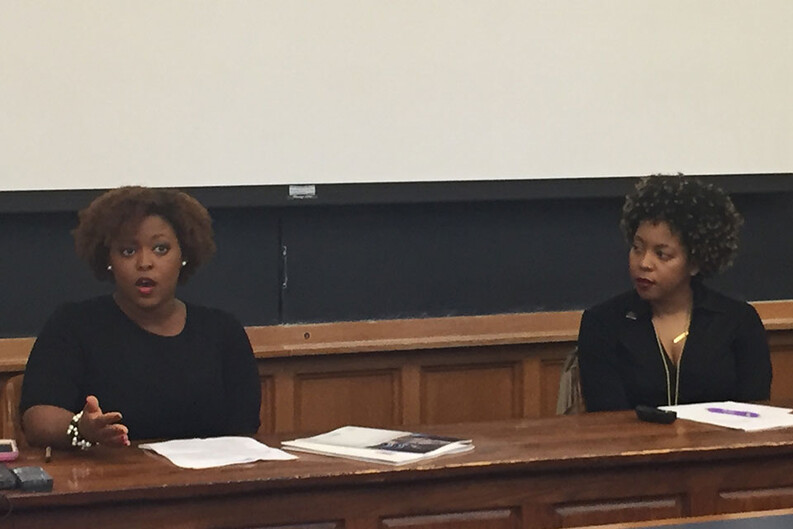Black Mamas Matter

On March 1, 2017, the Solomon Center for Health Law and Policy, the Program for the Study of Reproductive Justice and the Global Heath Justice Partnership hosted a lunch discussion on Black Mamas Matter, a black women-led alliance working in the area of maternal health, racial disparities and justice. Additional co-sponsoring organizations included the Schell Center for International Human Rights and Yale Law School student organizations the Black Law Students Association, Law Students for Reproductive Justice, the Yale Health Law and Policy Society, and the American Constitution Society.
The discussion, entitled “Black Mamas Matter: Maternal Mortality and Racial Disparities in Maternal Healthcare,” featured Kwajelyn Jackson, Community Education & Advocacy Director at Feminist Women’s Health Center in Atlanta, Georgia, and Elizabeth Gay, a writer and reproductive justice advocate. Both are members of the Black Mamas Matter Steering Committee.
The speakers kicked off the event by sharing information about maternal health disparities in the United States. Black women are three times more likely than white women to die after giving birth. These racial disparities persist even after controlling for income, access to health care, and age. Women in Texas now have the worst maternal mortality rates in the developed world, and the outcomes can be even worse when broken down at the local level—women in Fulton County Georgia (Atlanta) die from childbirth at rates higher than in Peru.
Gay and Jackson discussed the origins of Black Mamas Matter as an organization to focus attention on these unnecessary deaths and raise up black women’s voices as advocates for change and experts in successful interventions. The organization focuses on reducing maternal mortality and disparities in maternal mortality through policy advocacy, research, care, and shifting culture. Throughout the discussion, the speakers emphasized the importance of a multitude of social determinants of health in creating these negative outcomes and the importance of addressing the issue through a broadening of the reproductive justice lens to encompass the myriad of issues that shape when women become pregnant and how their pregnancies progress—from exposure to violence, lack of living wages and family leave to access to contraception and abortion. Their policy toolkit4 offers possible interventions from a variety of perspectives and through a variety of issue areas traditionally thought of as separate.

